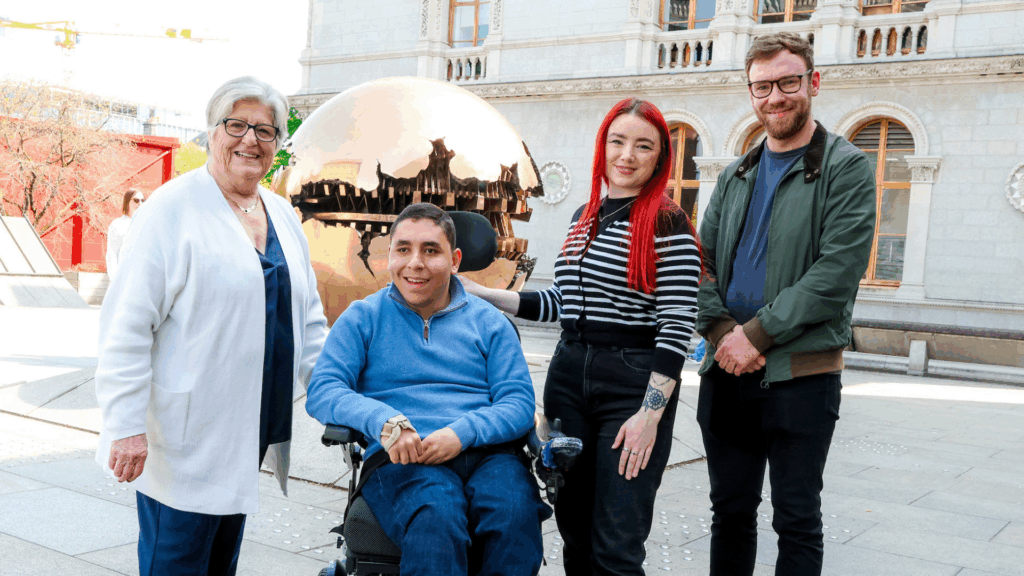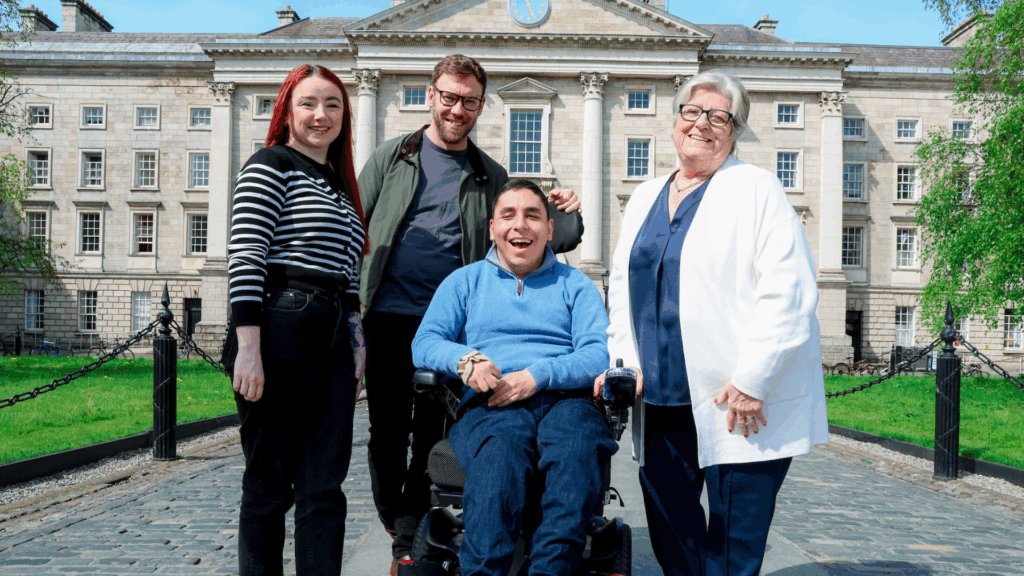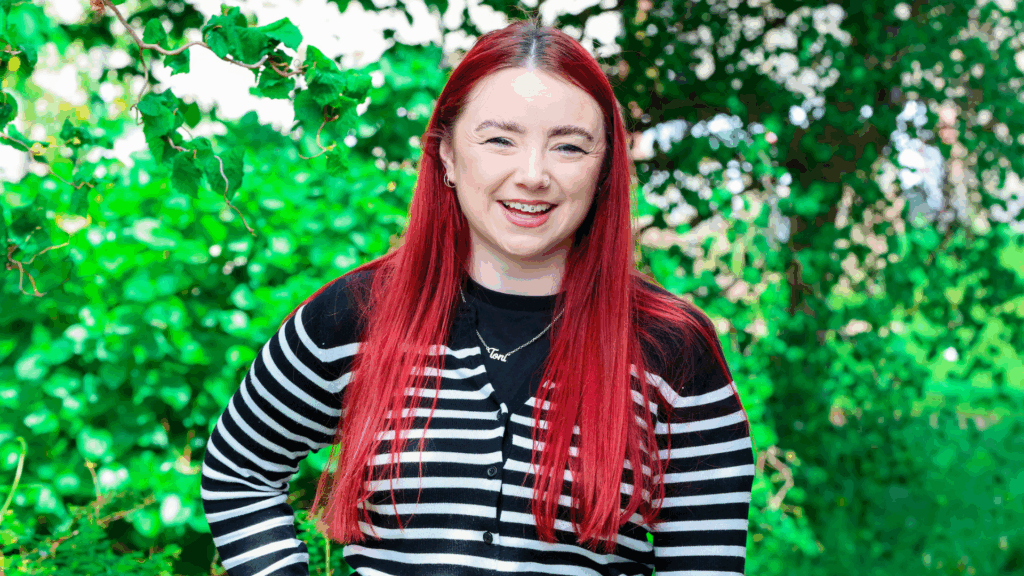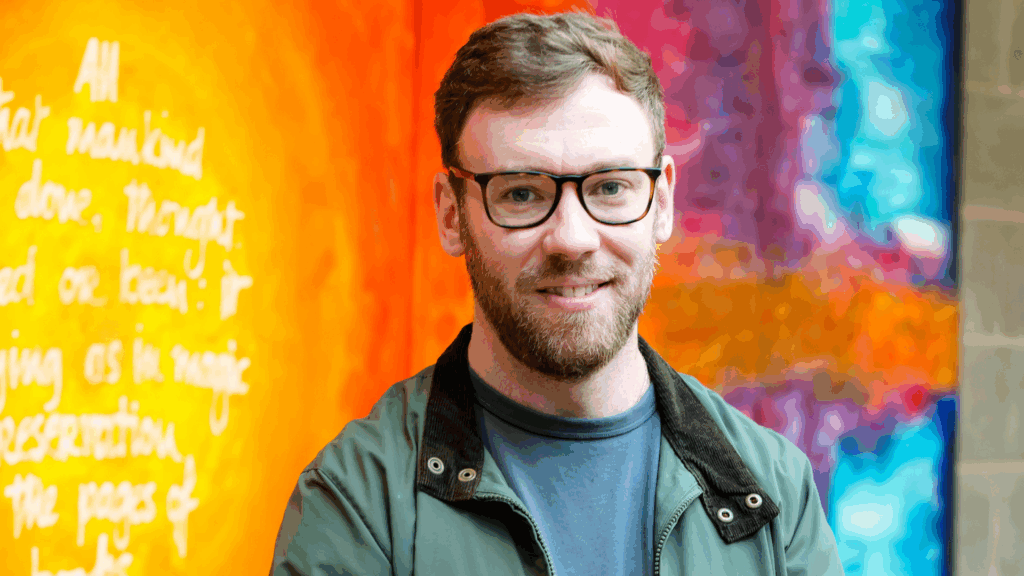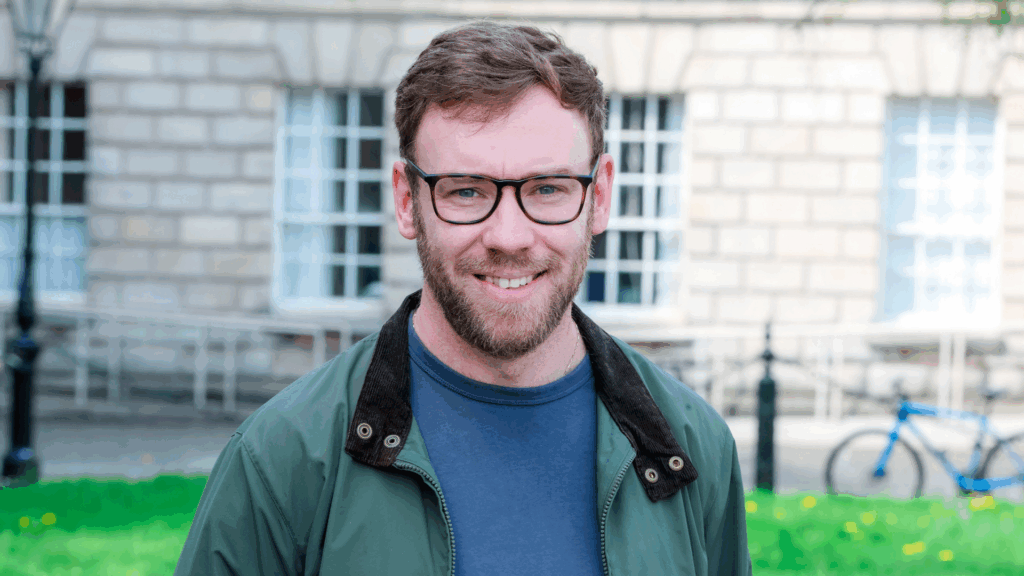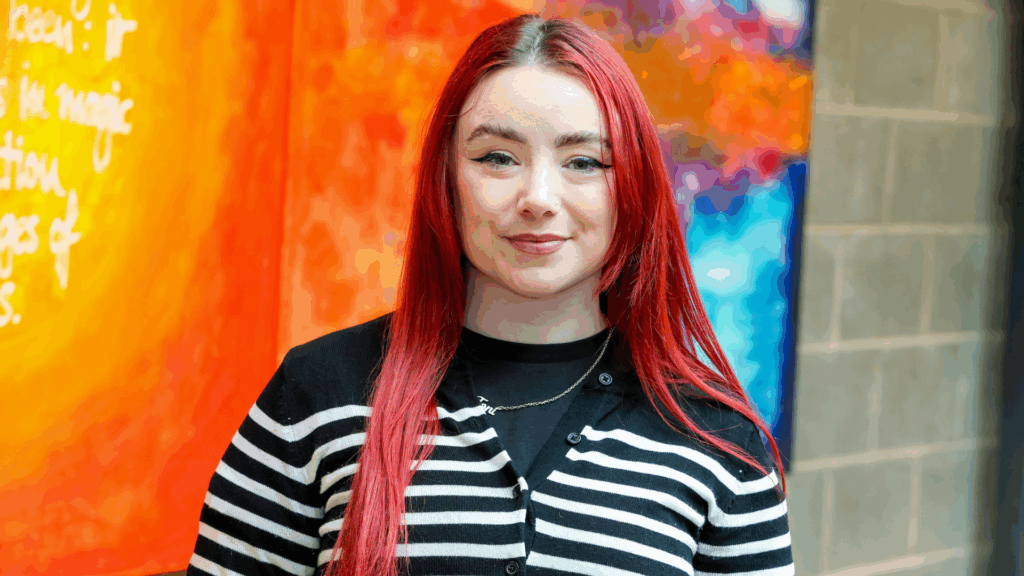Generation Access Trinity College Dublin
Abdulrahman Aljanabi, Management Science and Information Systems Studies student at Trinity
Abdulrahman accessed college through the DARE scheme
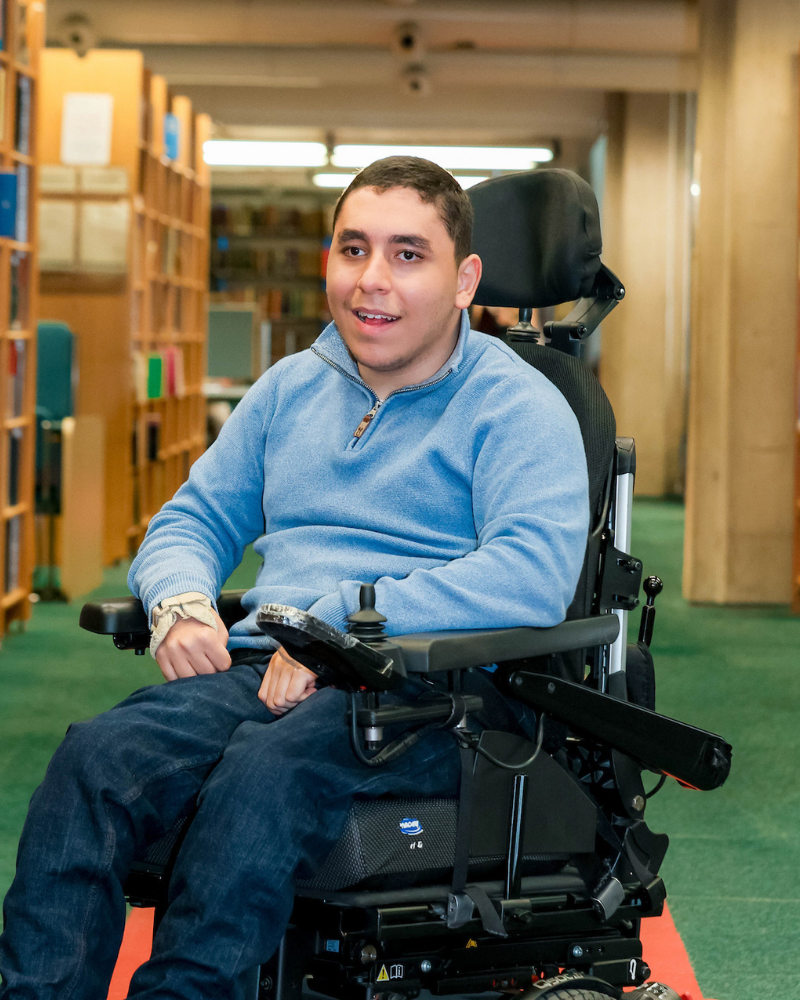
My experience of accessing university was made a lot less stressful by the fantastic Additional Educational Needs (AEN) co-ordinator at my school and a really approachable guidance counsellor. Once I made them aware of my preferred courses, they assisted me in completing all the required paperwork. This allowed me to focus fully on studying. Naturally, I was nervous during the application process because there are so many things that you cannot control. However, I believed that if I worked hard, everything would work out.
Have you faced any challenges as an access student during your time in college?
‘Having cerebral palsy means that I am exhausted at the end of almost every day. This limits my ability to socialise after college hours. Despite this, I have made a close group of friends whom I really value. This gives me an outlet to authentically express my outgoing and talkative personality. In my view, every challenge can be turned into an opportunity to grow.’
Where do you see yourself after completing your degree?
After completing my degree, I will pursue the MSc in Intelligent Systems at Trinity. One of my biggest goals is to work as an investment banker both here in Ireland and in the United States.
Toni Mockler, Biomedical Engineer
Toni accessed college through a Foundation course
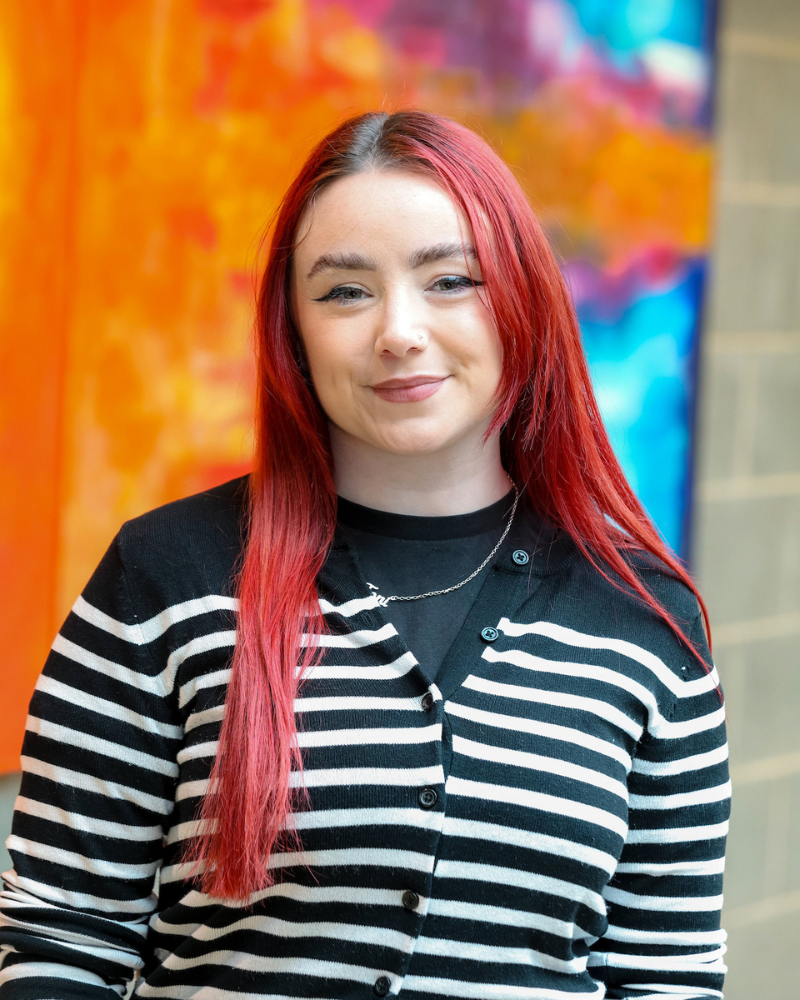
The Trinity Access Programmes Foundation Course helped my transition into higher education as it gave me a sense of “being”. Meeting other access students helped me feel like I belonged. They also understood me more than some of the people in my course. They were an amazing support during hard times in college and they always had time to listen to me rant when I needed it!
How did university help shape your career path and personal growth?
Going to university massively altered my career path and personal growth. If I had not have gone into university I probably would be in a job that I had no passion for. I have gained so much confidence in my capabilities, I feel as though I can do anything I truly set my mind to.
Seán Adderley, Trinity Inclusive Curriculum Project Manager
Seán accessed college through a Foundation course
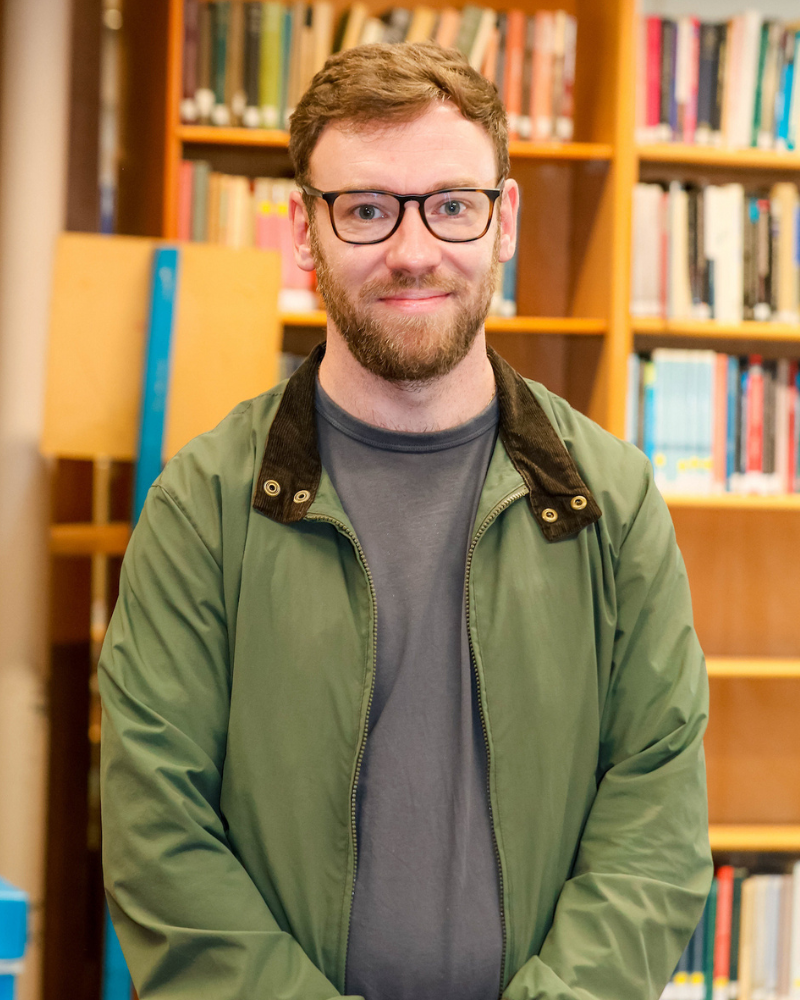
I’ve always had a deep love of learning and an insatiable curiosity about the world. The Trinity Access Programme (TAP) played a pivotal role in my return to education. My school experience had been far from ideal, I rarely attended. Although I did complete my Leaving Cert and earned 150 points, my relationship with education was shaped by those early, disengaging years.
Since leaving school, I’d been working continuously, but I had never found a job that truly fulfilled me. It wasn’t until my late 20s, that I began to reconsider education for myself.
When I discovered TAP and learned that it offered the chance to explore a variety of subjects, I was immediately intrigued. I knew I wanted to study – I just didn’t know what yet, and TAP gave me the perfect opportunity to figure that out. TAP fostered the confidence in me that I needed to navigate this new and daunting environment. TAP was also a constant throughout my degree. The staff were always there to listen and support you whatever way they could.
Vera Lawlor, History student at Trinity
Vera accessed college through the Foundation course
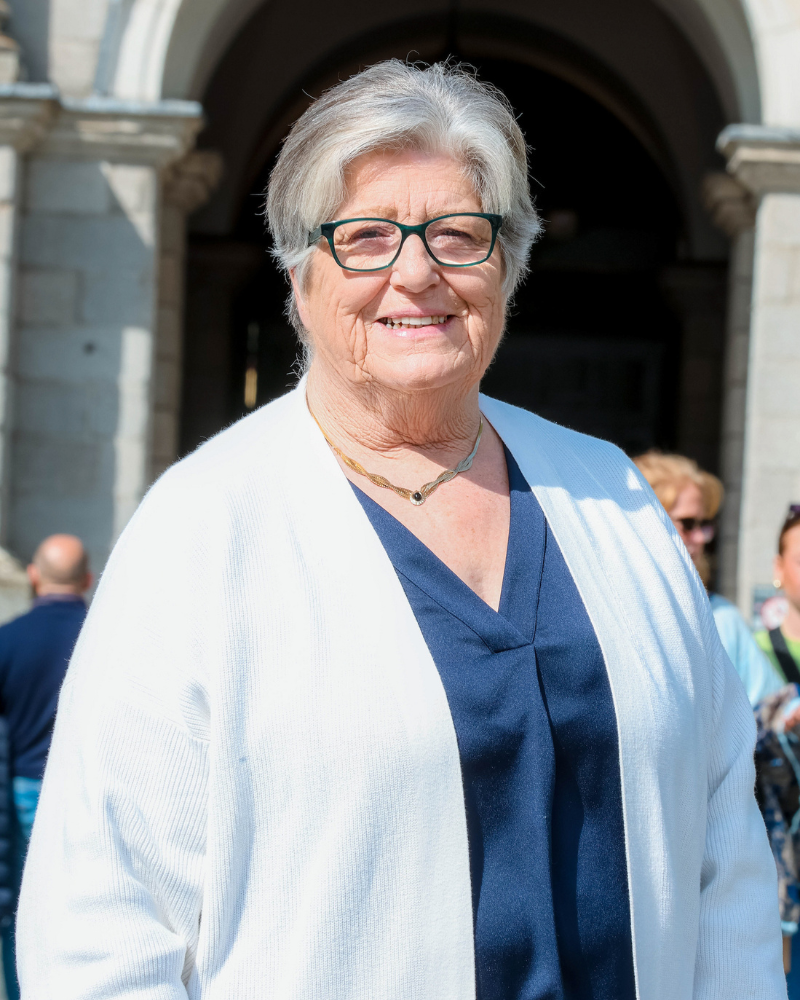
I was an early school leaver and never sat State exams. I worked for over 50 years. I got married, had children and a mortgage. When I retired from work at the age of 65, I found retirement was not for me.
I completed a couple of online courses during the pandemic and enjoyed learning new things. I came across the TAP Foundation Course for mature students (over 23 years old) and discovered their admissions criteria for matures was not reliant upon your leaving cert points but instead valued the whole measure of a person, their life, interests and work experience. I also thought that my age might be a barrier to applying however, this was not the case.
I was offered a place on the course. For me it had been fifty two years since I attended school, I was scared I would not be able. I have to admit I found it very overwhelming at the beginning. I suffered from imposter syndrome which I was told was not unusual, plus I also had medical issues.
The day I entered TAP I discovered that there was a range of supports there if I needed them. The Disability services on campus were very helpful, assisting me with accommodations such as extra time given for exams and the facility to record lectures, which was of enormous help. I have also been very lucky to have a personal tutor whom I feel always has my back in times of need. Although I experienced tough times and still occasionally suffer from imposter syndrome, I now believe that I deserve to be here.
I am finding my time here very rewarding, and I am enjoying every minute of the experience.

